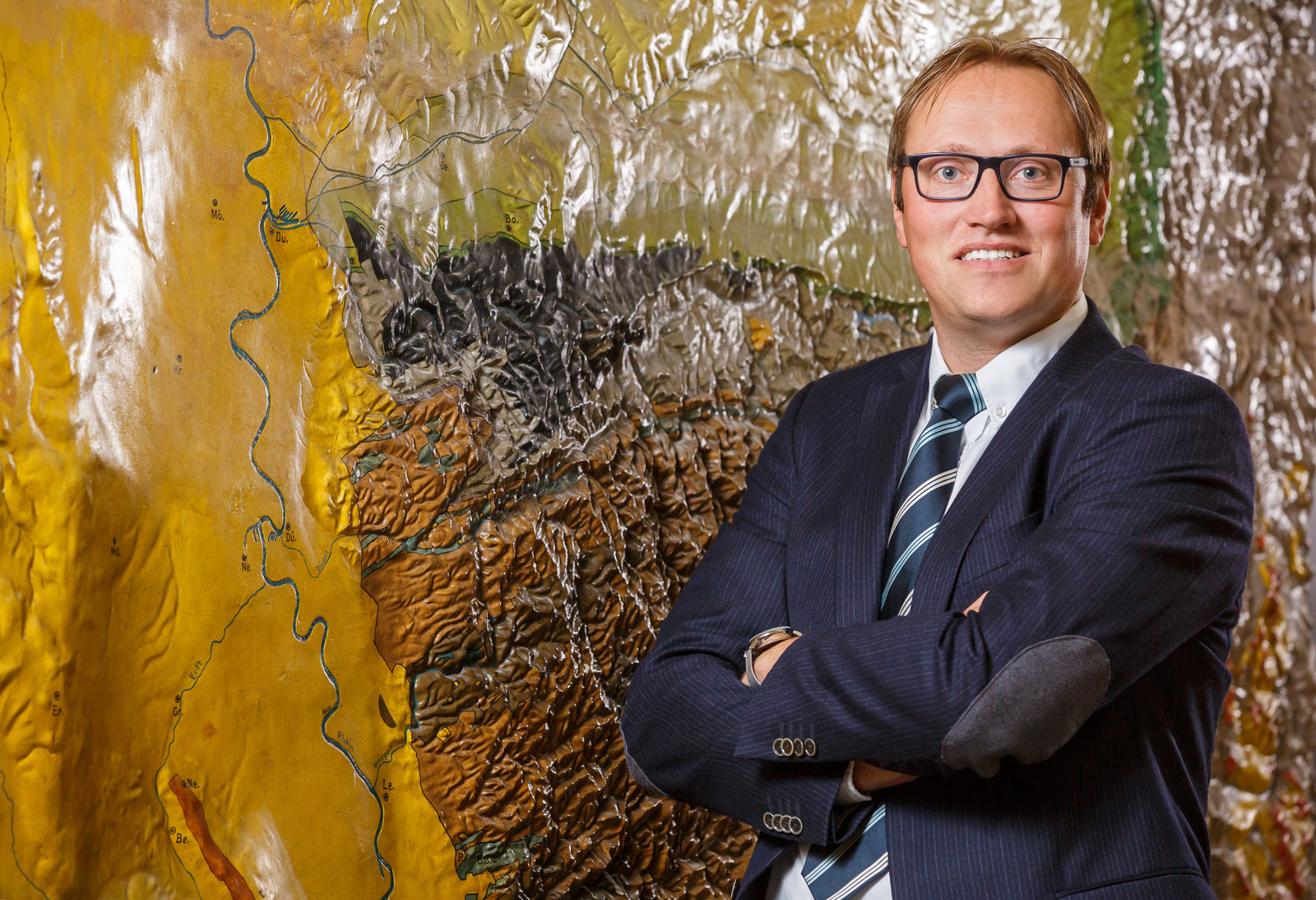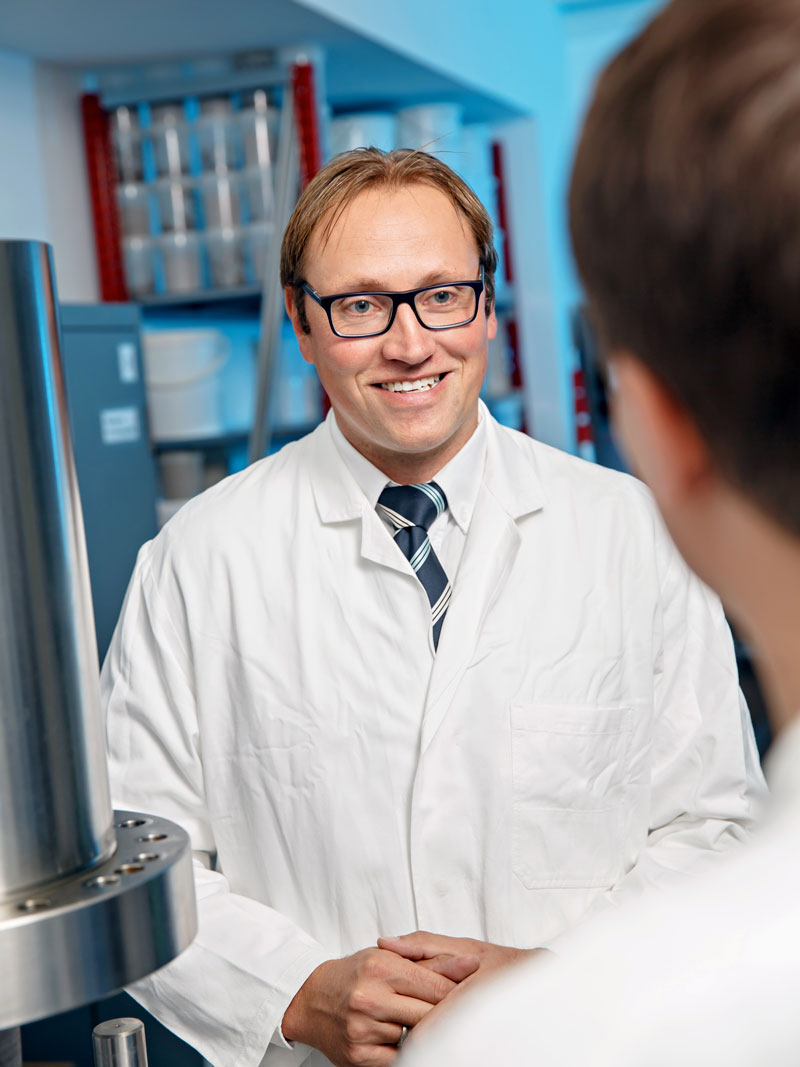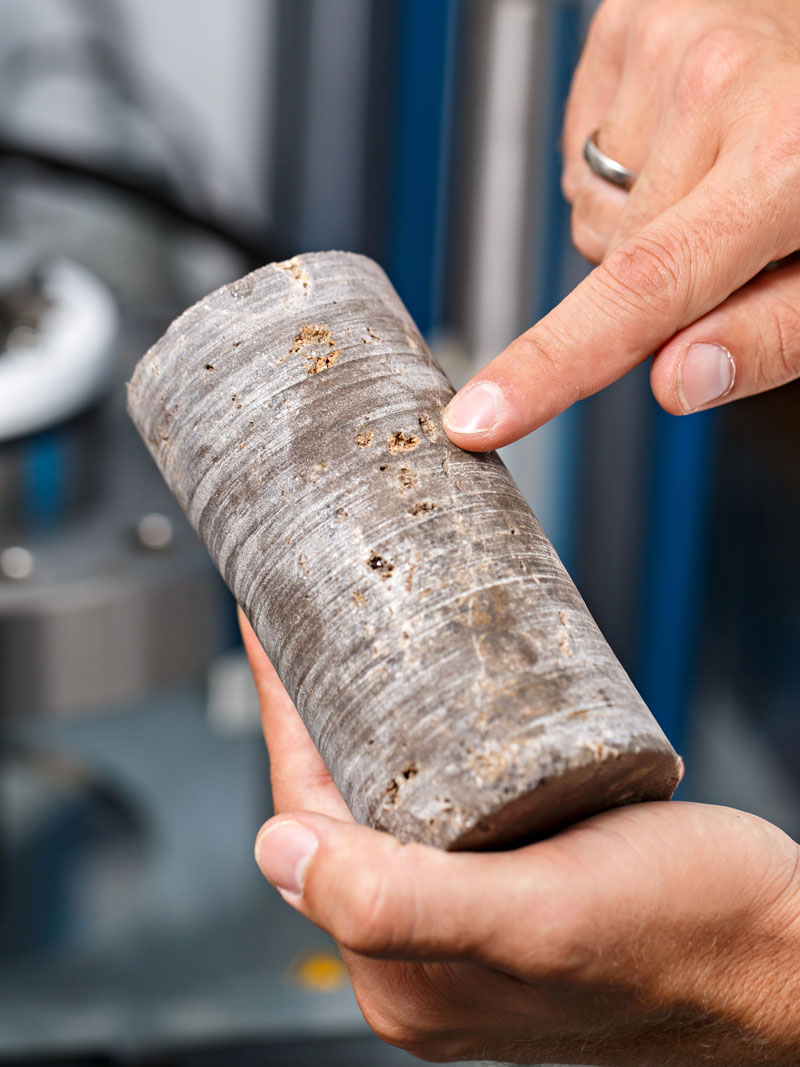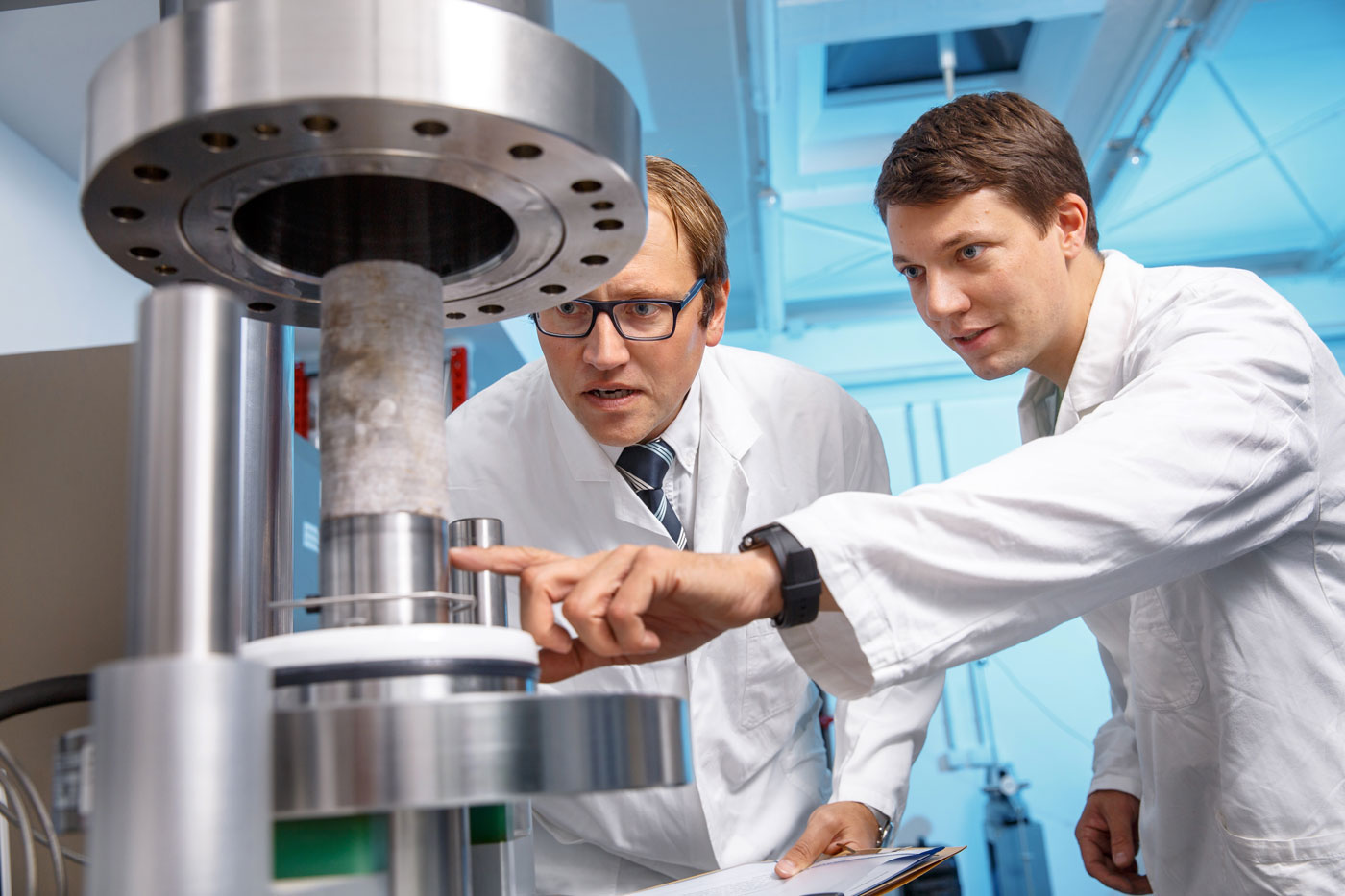Prof. Christian Melchers wants to the minewater in decommissioned collieries to be allowed to rise in a controlled manner. He is certain of one thing: It is only by shutting down the underground pumps at some stage in the future, that the water resources in the former mining landscapes, can be reshaped in a near-natural way.

The term perpetual obligations frequently crops up when we talk about post-mining. You prefer to talk about perpetual tasks. Why?
Prof. Dr. Christian Melchers: Obligations are things we are forced to bear, whereas tasks are things that can be solved. What this principally means for the mining regions of the Saar, Ruhr and Ibbenbüren areas, is the design of sustainable water management systems within the closed mineworks. Permanently pumping millions of litres of minewater from the great depths up to the surface, is neither ecologically nor economically sensible. Using the word “task” makes the word “perpetual” seem more manageable somehow. It's not really possible for anyone to properly define “perpetual”. In the world of science, we are accustomed to continuously asking critical questions, and repeatedly adopting innovative approaches.


Why don't the mining companies simply close the gates to the collieries, and wait and see what happens with the minewater, for example?
Prof. Dr. Christian Melchers: The Ruhr Area is home to more than five million people, and more than half of its municipalities are affected in some way by mining and its legacies. Then there are the stringent environmental requirements that have to be met. So, it’s just not possible to simply shut the gates, and look and see what occurs. We want to understand the processes that take place underground. And we have to identify specific solutions so that we can reconcile the needs of people with those of the environment. From a scientific perspective, there’s much to be said for allowing the minewater table to rise in a controlled manner, because firstly this increases the quality of the water, and secondly, it reduces the volumes that have to be pumped. But of course, it has to be kept to a level that ensures that the safety of freshwater reservoirs is not affected. This is a process that has always been performed in other regions across the world, but also closer to home too, such as in France or in Saxony.

So, you do indeed learn from other regions. Nevertheless, the FZN is the only institution of its kind in the world. What has your team to teach mining countries regarding the future?
Prof. Dr. Christian Melchers: As an industrial society, we will still need to mine raw materials to exist in the future. However, the level of acceptance globally will be measured according to how companies manage the legacy aspects. Wherever uncertainty prevails, the assumption is that there is danger. Commercial undertakings need analyses to have the ability to gauge the consequences realistically, so that these can be discussed with decision-makers and stakeholders. The FZN is a place where “mine life-cycle analyses” are created by specialists working in fields such as mining, geology and geo-engineering, hydrogeology and mining geodesy. And even though our investigations primarily focus on the coal mining districts of the Ruhr, Saar and Ibbenbüren areas, this know-how can also be transferred to other regions across the world. Rather than simply store our knowledge in an archive, we want to make it available to others. It’s one part of our social responsibility.
Vita – Prof. Dr. Christian Melchers
Prof. Dr. Christian Melchers is the Deputy Director of the Research Center of Post-Mining, which he has been helping to establish and expand since 2012. In his work as Professor for Geo-engineering and Post-mining, he focuses on methane - also known as mine gas - the density stratification of water, and hydraulic barriers and minewater ascent processes in the decommissioned mining installations of the Saar, Ruhr and Ibbenbüren regions.

